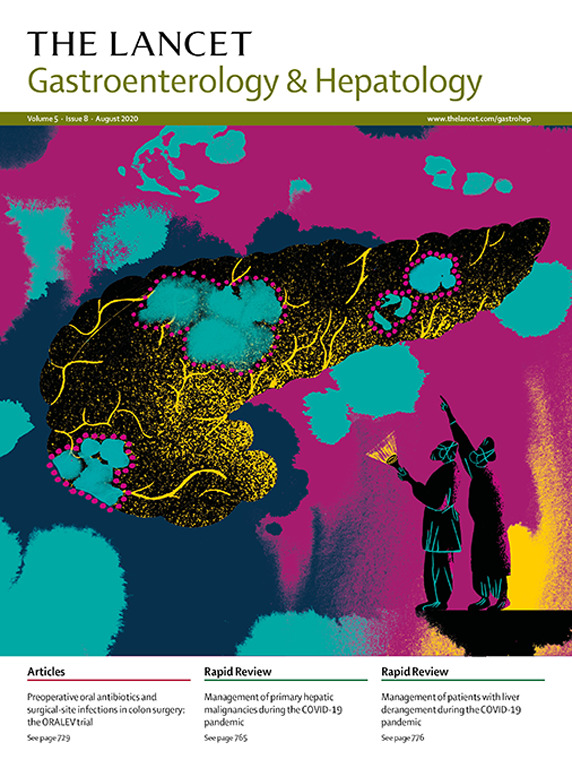Recompensation in decompensated cirrhosis
IF 38.6
1区 医学
Q1 GASTROENTEROLOGY & HEPATOLOGY
引用次数: 0
Abstract
Recompensation of decompensated cirrhosis has been defined by the Baveno consensus as control or cure of the main underlying cause; resolution of clinical manifestations, including ascites and hepatic encephalopathy, without the use of prophylactic medications, and without variceal bleeding for 12 months; and restoration of hepatic function. Cure and recompensation are usually associated with regression of liver fibrosis. Recompensation can occur when hepatitis C virus is eradicated, if hepatitis B virus infection (without hepatitis D co-infection) is suppressed, and following persistent alcohol abstinence in patients with alcohol-associated cirrhosis. Although cirrhosis related to metabolic dysfunction-associated steatotic liver disease can improve following lifestyle or pharmacotherapy-assisted weight loss, and autoimmune liver disease can respond to immunosuppression, it is unclear if true recompensation can be achieved in such patients. Recompensation of cirrhosis could be an achievable clinical target, offsetting costs of management of advanced liver disease, and decreasing the need for liver transplantation. Consequently, public health policies should pursue programmes that promote alcohol cessation, eliminate viral hepatitis, and address obesity.失代偿性肝硬化的再代偿
Baveno共识将失代偿期肝硬化的再代偿定义为控制或治愈主要潜在病因;临床表现(包括腹水和肝性脑病)消除,未使用预防性药物,12个月内无静脉曲张出血;以及肝功能的恢复。治愈和再补偿通常与肝纤维化的消退有关。当丙型肝炎病毒被根除,如果乙型肝炎病毒感染(无丁型肝炎合并感染)得到抑制,并且酒精相关性肝硬化患者持续戒酒后,可发生再补偿。虽然肝硬化与代谢功能障碍相关的脂肪变性肝病可以在生活方式或药物治疗辅助减肥后得到改善,自身免疫性肝病可以对免疫抑制做出反应,但尚不清楚这类患者是否可以实现真正的再补偿。肝硬化的再补偿可能是一个可实现的临床目标,可以抵消晚期肝病治疗的费用,并减少肝移植的需要。因此,公共卫生政策应推行促进戒酒、消除病毒性肝炎和解决肥胖问题的规划。
本文章由计算机程序翻译,如有差异,请以英文原文为准。
求助全文
约1分钟内获得全文
求助全文
来源期刊

Lancet Gastroenterology & Hepatology
Medicine-Hepatology
CiteScore
50.30
自引率
1.10%
发文量
0
期刊介绍:
The Lancet Gastroenterology & Hepatology is an authoritative forum for key opinion leaders across medicine, government, and health systems to influence clinical practice, explore global policy, and inform constructive, positive change worldwide.
The Lancet Gastroenterology & Hepatology publishes papers that reflect the rich variety of ongoing clinical research in these fields, especially in the areas of inflammatory bowel diseases, NAFLD and NASH, functional gastrointestinal disorders, digestive cancers, and viral hepatitis.
 求助内容:
求助内容: 应助结果提醒方式:
应助结果提醒方式:


